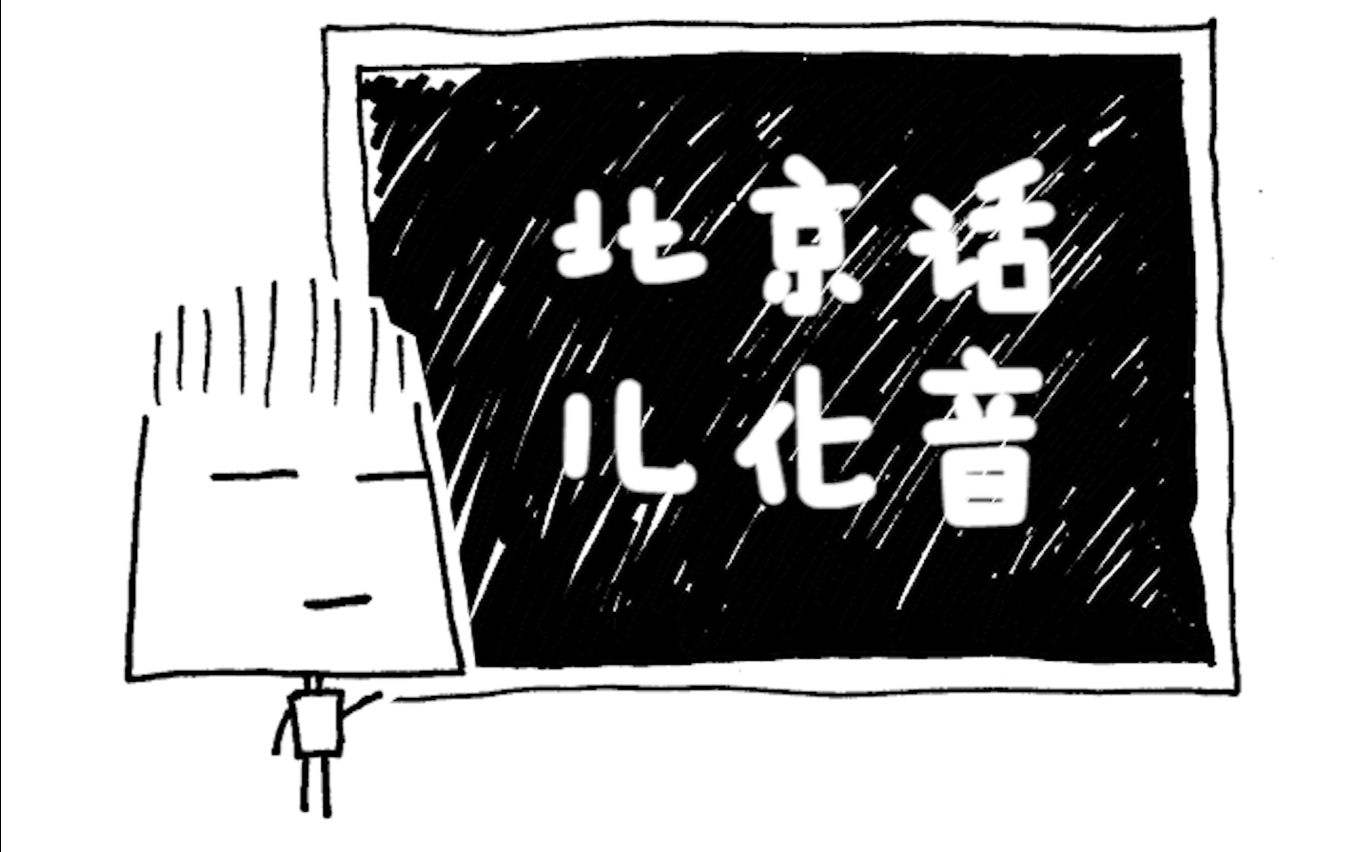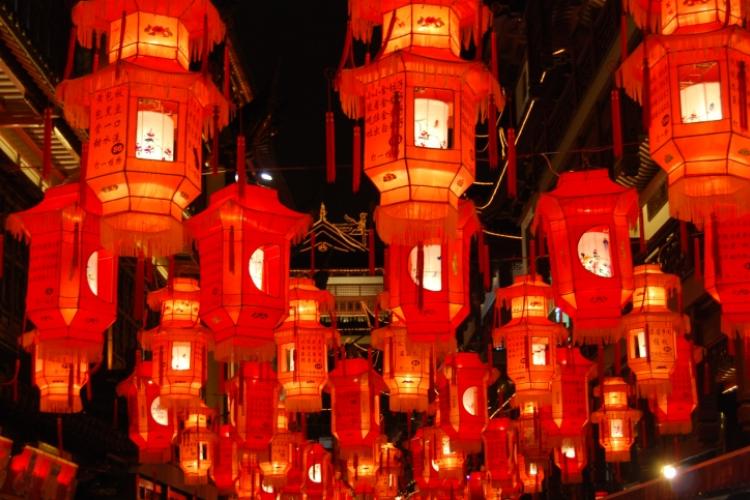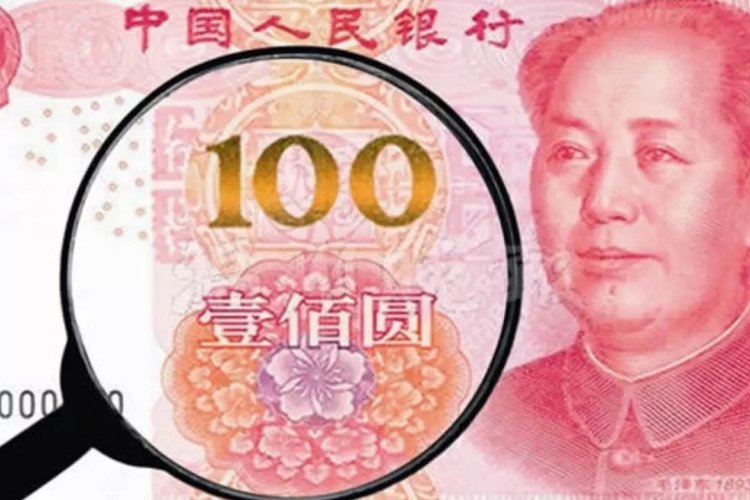Mandarin Monday: Beijing Accent Guide, "儿 Er" Special
It's 3AM, you're in Gulou and you're spent. All you want is to get in a taxi and head home, but the cab driver insists on having a conversation. You think you're keeping up but, he throws in more 儿's (er's) than an NBA player. "What on earth is he saying?!", you think to yourself. This is one example of the many idiosyncrasies of 北京话 (Beijing hua, the Beijing accent/dialect). Although it is an iconic feature of this great city, you may be surprised to learn that foreigners aren't the only ones who struggle to decipher this dialect. In fact, an infographic has gone viral on Weibo recently with elementary school-style worksheets and lessons on Beijing hua. Let's check it out, and help you achieve that local Beijing accent with all the quirks and phrases that go along with it...
Here are the original photos and translation of the “儿" related content below.
课前热身 Pre-class warm up

Aren't RP (Recieved Pronounciation) Mandarin and Beijing Hua basically the same?
Some people say that RP Mandarin is derived from the Beijing Hua, and only from Beijing Hua. Yet whether it is intonation, speed of speech or daily communication habits, both RP Mandarin and Beijing Hua differ from each other significantly;
They are not basically the same.
Now let's look at the difference between RP Mandarin and Beijing Hua.
In RP Mandarin:
- Accented words are accurate, the pace of speech is moderate.
- There is a system of pronunciation rules.
- Intonation is moderate.
- It is easier for foreigners who are learning Chinese to understand and speak RP Mandarin.
Beijing Hua:
- Accented words are quirky, the pace of speech is fast.
- The use of "Er" is very common at the end of certain words where they do not originally belong, seemingly without any kind of laws for when to use it.
- The pitch and tone varies vastly, and certain pronunciations are more exaggerated.
- Foreigners who have been learning Chinese for a long time may still have difficulty listening to and speaking in Beijing Hua.
Class 1: When to use 儿

The most striking thing about the "儿" quirk is that you can hear it almost everywhere in Beijing, but it comes with a catch... there are basically no laws or rules about using it! Fear not. We have prepared some examples for you which show you certain patterns that are somewhat regular, so that you can apply the 儿 into your everyday life.
1. Firstly, you can use the "儿" when describing small or petite items. For example:
- Rice 米粒 (mi li) –> 米粒儿 (mi li'er)
- Petal 花瓣 (hua ban) –> 花瓣儿 (hua ba'er)
- Similarly for place names:
- 东便门 (Dong Bian Men) –> 东便门儿 (Dong Bian Me'er)
- 广渠门 (Guang Qu Men) –> 广渠门儿 (Guang Qu Me'er)
- Park 公园 (Gong Yuan) –> 公园儿 (Gong Yua'er)

2. Secondly, it can also be used in descriptions of people
- Thief 小偷 (xiao tou) –> 小偷儿 (xiao tou'er)
- Spendthrift 败家子 (bai jia zi) –> 败家子儿 (bai jia'er)
3. It can be used for things you love, too
- Necklace 项链 (xiang lian) –> 项链儿 (xiang lia'er)
- Ice popsicle 冰棍 (bing gun) –> 冰棍儿 (bing gu'er)
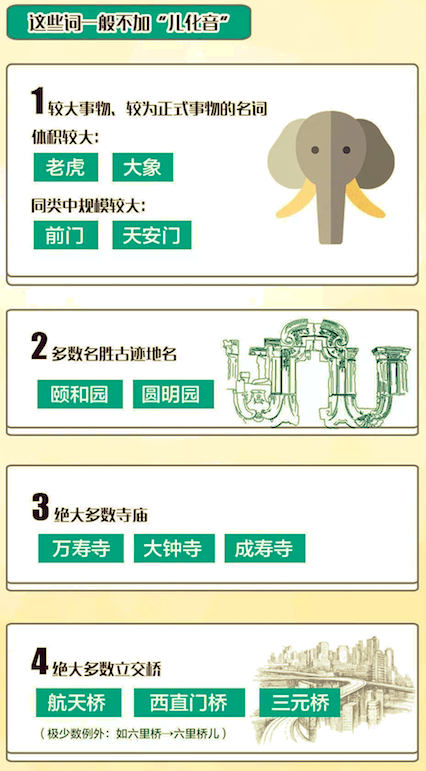
Class 2: When Not to use 儿
To describe larger items, such as an elephant or a tiger, most scenic spots, most temples, and most bridges.
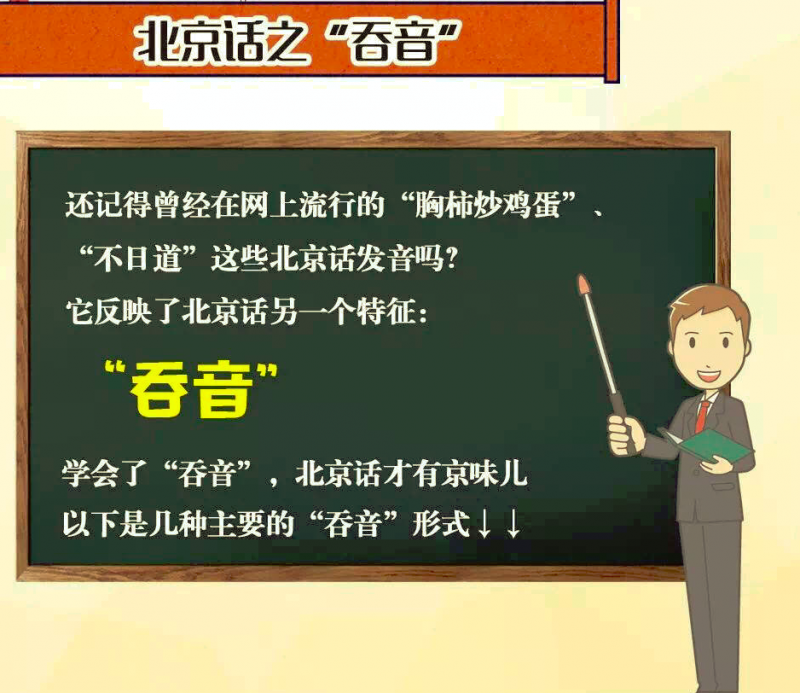
Class 3: The Beijing Hua "swallow"
Now let's talk about the Beijing Hua's "swallowing" sound! Do you remember the days on the internet when 不知道 (bu zhi dao) was stylised as 不日道 (bi ri dao)? This is called the "swallowing" sound. Once learned, your accent will sound identical to any 老哥们儿 out there!

The 'zh', 'ch', and 'sh' sounds are sometimes changed for an 'r', especially in the second word of a three-worded phrase. Examples are shown above: 'Hello Teacher' 老师好 laoshihao, becomes laorihao. 'Library' 图书馆 tushuguan, becomes turuguan. 'I don't know' 不知道 buzhidao, becomes buridao. It is suggested that the second word is spoken very quickly and ambiguously; if spoken in the 'r' sound too clearly, it sounds wrong and awkward.
That's all for this weeks Beijing Hua class. You're one more step to becoming someone's 老铁!没毛病!
READ: Don't Get Chinese Internet Slang? Now There's a Book For That

